Speaker of Georgian parliament resigns after anti-Russian protests injure 240
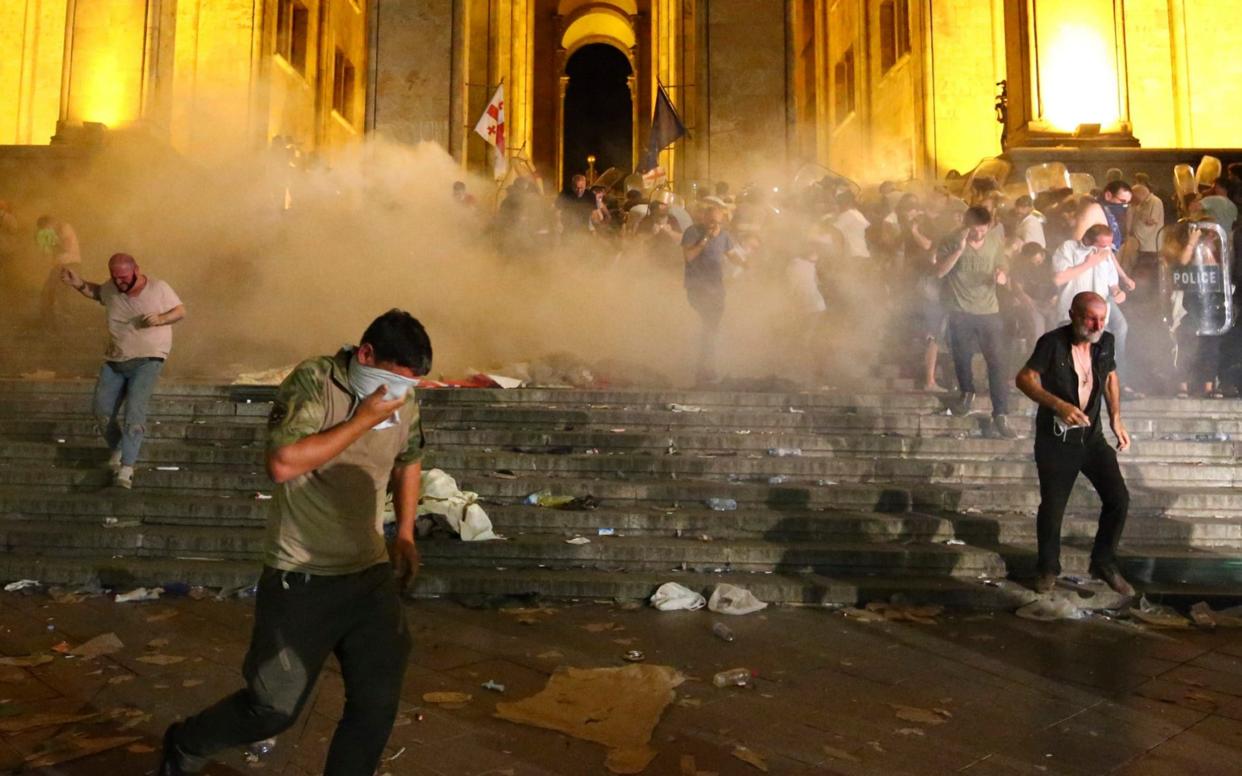
The speaker of Georgia's parliament has resigned after 240 people were injured in protests overnight against Russian influence.
Irakli Kobakhidze, who was in Azerbaijan when Russian MP Sergei Gavrilov took his chair to head an inter-parliamentary session on Orthodox Christianity on Thursday, has stepped down to demonstrate “accountability to society,” the ruling Georgian Dream party said.
This fulfils a key demand of the opposition, which has also called for early elections and sweeping reforms and was planning another protest in the capital Tbilisi on Friday evening. A group of young men, many of them in masks, were filmed overturning a car during the day.
Georgian Dream's policy of keeping good relations with its northern neighbour has been controversial in Georgia, which has a population of less than 4 million and sits between between Russia and Turkey. Georgia lost its South Ossetia region in a five-day Russian invasion in 2008.
Moscow also props up the Georgian breakaway republic of Abkhazia, leaving one-fifth of the country outside Tblisi's control.
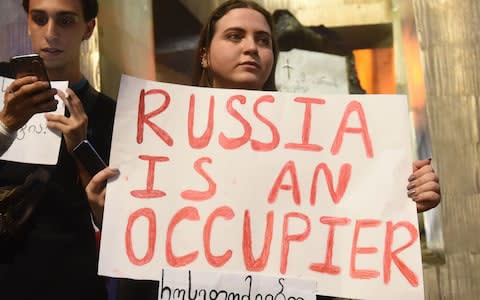
Vladimir Putin's spokesman called the protests a “Russophobic provocation” and said the Kremlin was “extremely concerned” as many Russian tourists visit Georgia.
Tensions in the devout country have already been running high ahead of the first-ever LGBTQ pride parade in Tbilisi this week.
Mr Gavrilov's appearance sparked arguments that saw politicians throw water at each other and block his return to the speaker's chair on Thursday. He voted with the majority of the Russian parliament to recognise the two breakaway republics' independence in 2008 and was rumoured to have fought in Abkhazia, which he has denied.
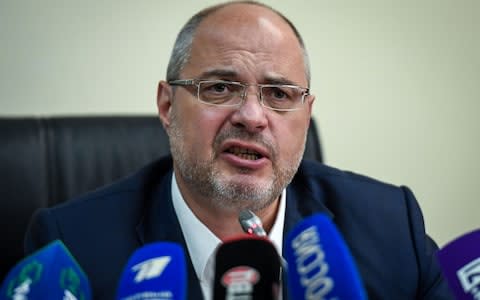
Several thousand protesters had gathered outside parliament by Thursday evening, many of them chanting slogans against Mr Putin and carrying signs reading “Russia is an occupier”. Some demonstrators later tried to storm the building but were pushed back.
“The government invited our declared enemy, and he was sitting in parliament without any problem,” protester Gabriel Chubinidze, a university student, told The Telegraph.
Police fired tear gas, rubber bullets and water cannons to break up the protests in the wee hours of Friday morning, detaining more than 150 people. Some demonstrators reportedly burned Georgian Dream flags in the party headquarters.
One-hundred-and-sixty protesters and 80 police officers were injured in the clashes, and 102 people were still in hospital on Friday, including one in grave condition, the health ministry said.
Two people underwent surgery to have eyes removed, a Tbilisi hospital said. One of the patients was reportedly hit with a rubber bullet.
More than 50 people were jailed on Friday on charges of resisting police and hooliganism, a Georgian reporter told The Telegraph from court.
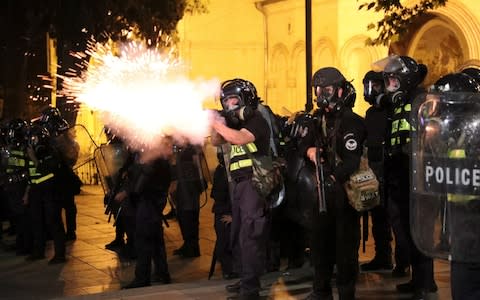
Human Rights Watch said Georgian police fired tear gas and rubber bullets without warning and called on officers to respect freedom of assembly and resort to violence only as a last resort. The Georgian public defender's office said it was investigating allegations of “abuse of power” by police.
Nina Jankowicz, a fellow at the Kennan Institute in Washington DC who was visiting Tbilisi, said the protest was peaceful. She said the police actions looked “like a disproportionate response to what was going on and escalated quickly”.
Mr Chubinidze blamed the violence on police and a small group of aggressive protesters.
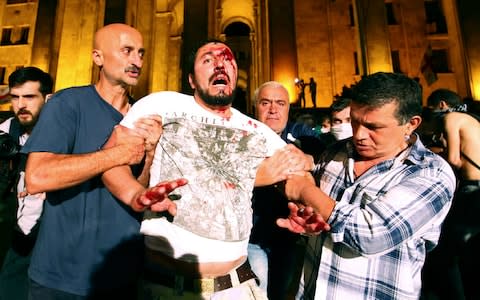
Mr Gavrilov claimed that the unrest was prearranged by “radical liberal anti-patriotic forces” and coordinated by American “handlers”.
But Mr Chubinidze said demonstrators came of their own free will.
“The whole of Georgia was shocked when we heard about this Russian deputy story,” he said.

